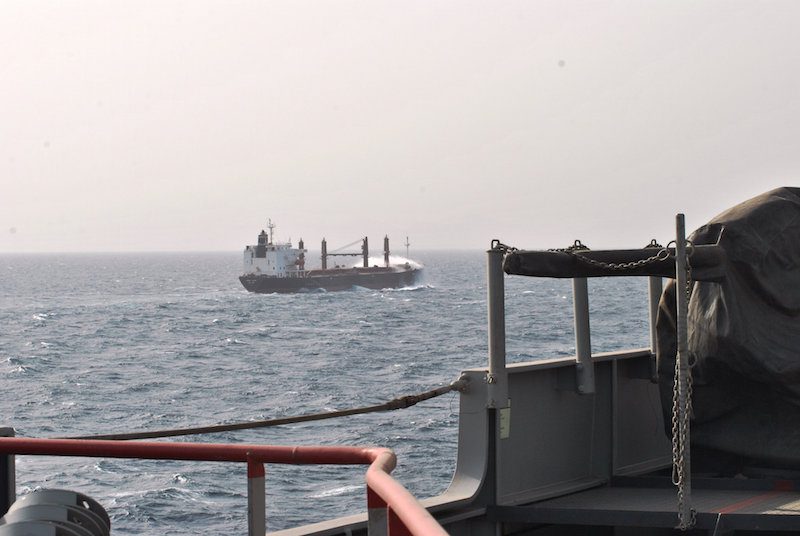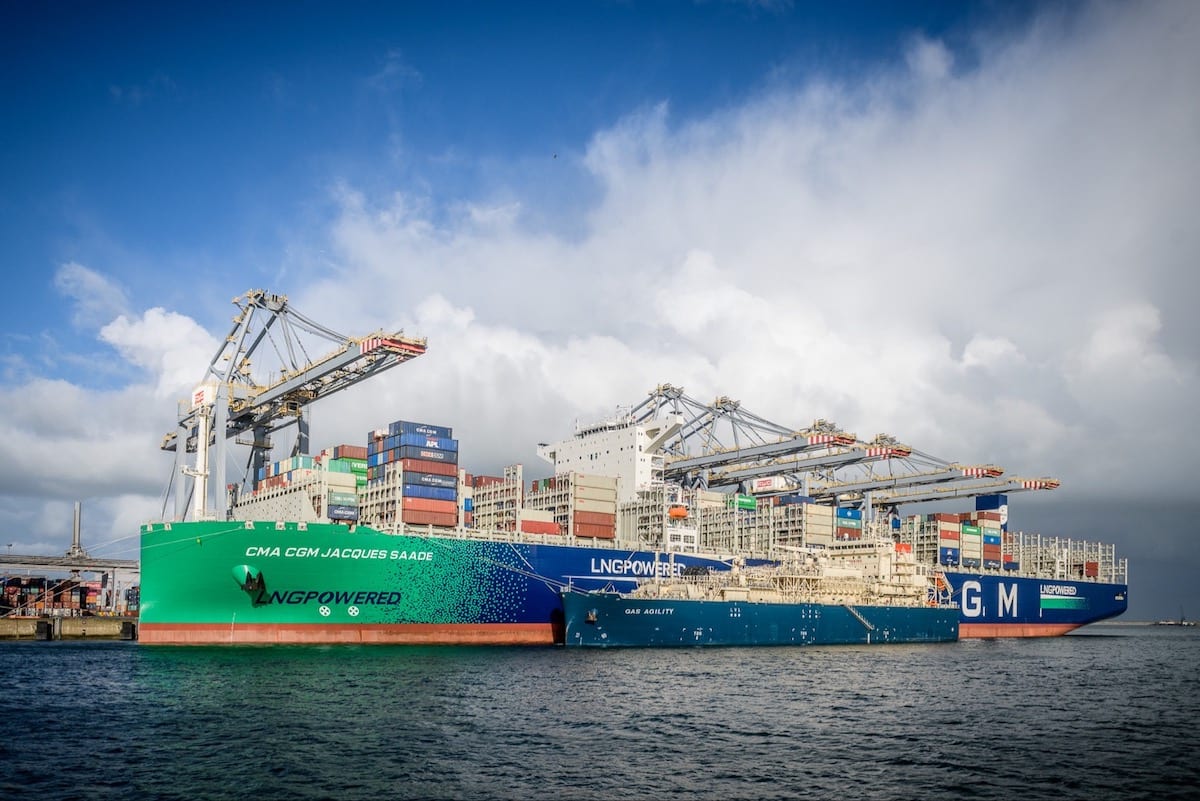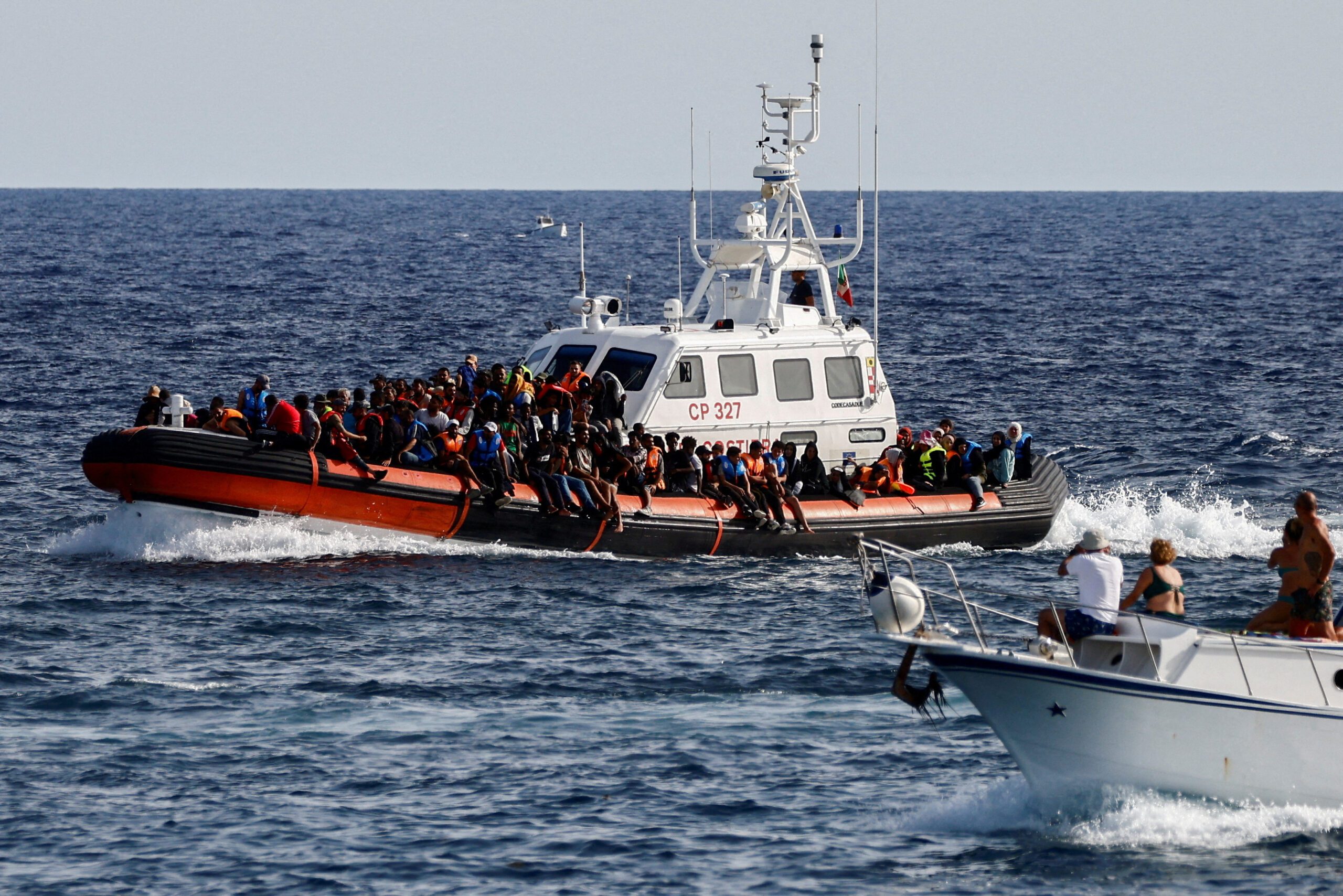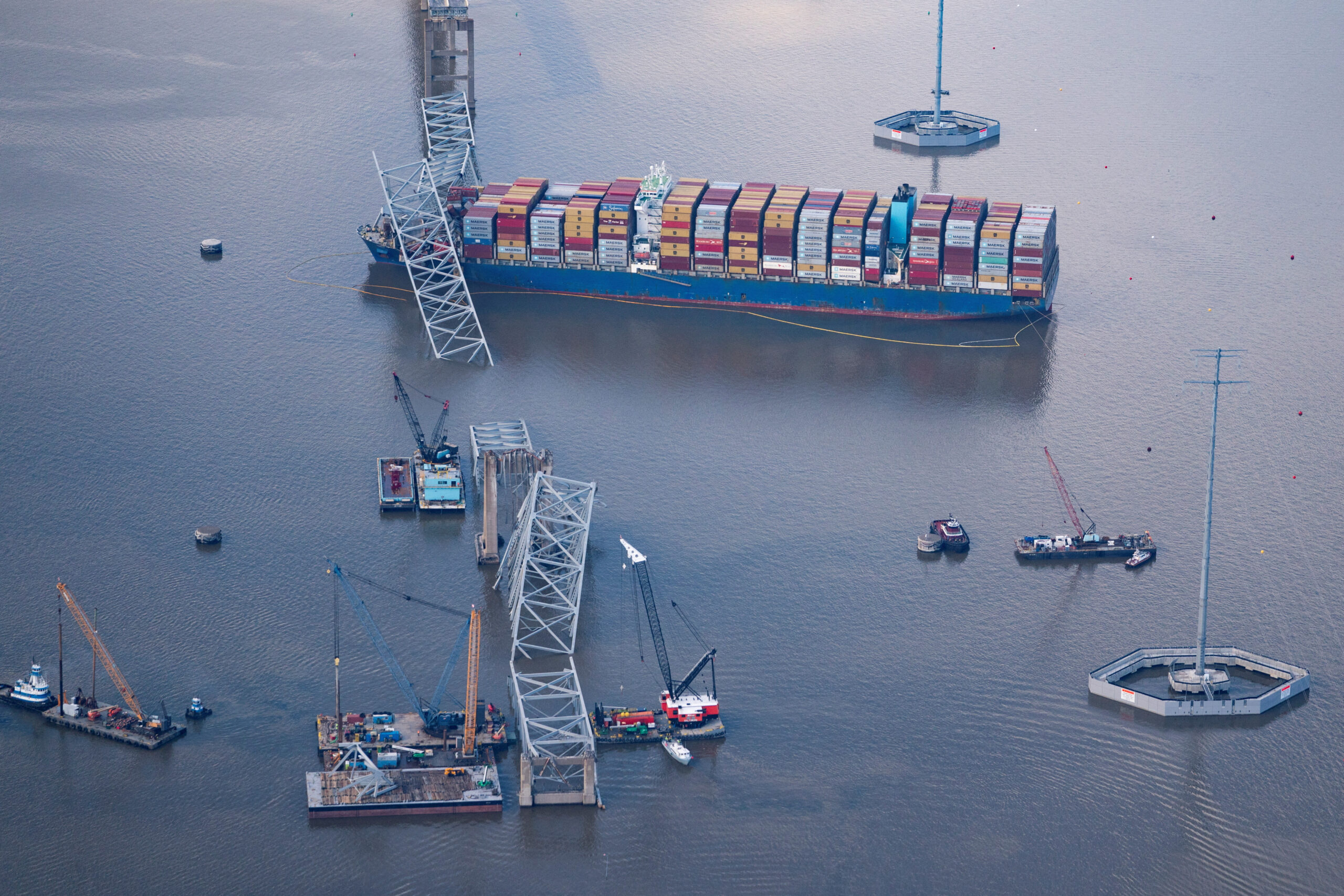An EU NAVFOR warship escorts a merchant vessel in the Gulf of Aden. Photo: EU NAVFOR
Despite reduced pirate activity off the western Indian Ocean in recent years, the pirate networks responsible for the original Somali piracy crisis have sustained themselves through small-scale attacks and involvement in an various maritime crimes, the piracy watchdog Oceans Beyond Piracy (OBP) said in its annual report released Monday.
A recent spate of attacks in recent few months off the Horn of Africa, apparently triggered by perceived vulnerability in vessels transiting the area, may point to an elevated risk for the return of Somali piracy, which cost an estimated $7 billion during its peak in 2011.
The return of Somali piracy is among key issues raised in the OBP’s State of Maritime Piracy 2016, an annual report analyzing the human and economic impacts of maritime piracy and robbery at sea around the globe.
During 2016, OBP estimates the economic cost of piracy in the Western Indian Ocean to be $1.7 billion; a small uptick from 2015, but overall a much lower than the cost of Somali piracy during its peak. The OBP report says lower costs are primarily due to decreased naval commitments and ship operators cutting back on the size of private armed teams embarked on their ships.
But while OBP notes that declining vigilance by the shipping community and reductions in naval patrols have allowed pirate networks to revive their activities, there are indications that counter-piracy cooperation has served to mitigate the recent string of attacks.
“I am struck by the willingness of all partners to cooperate in the face of a possible piracy resurgence and the human misery and disruption that this would cause to seafarers and vessels transiting the High Risk Area,” says Col Richard Cantrill, Chief of Staff of the European Union’s Naval Force (EU NAVFOR). “Naval forces, the shipping industry, and Somali partners are working together to understand the situation on the Horn of Africa and to cooperate in support of freedom and navigation.”
Another key finding of the report illustrates that pirate networks in West Africa and the Sulu and Celebes Seas in Southeast Asia are increasingly employing the ‘kidnap for ransom’ model.
“One of the reasons we are observing increased incidents of kidnap for ransom is that the model offers financial gain with less risk to the perpetrators than hijacking for cargo theft. Unfortunately, these kinds of attacks appear to have continued into 2017,” says Maisie Pigeon, a lead author of the OBP report.
Piracy in West Africa remains an area of concern as well. Overall, the total number of incidents off West Africa in 2016 almost doubled from 2015, affecting over 1,900 seafarers. “In the study of West Africa, we found that almost two-thirds of all reported incidents took place off Nigeria, yet the majority occurred in international waters,” says Dirk Siebels, another author of the report. “Most of these attacks were violent, putting seafarers at risk of being kidnapped or even killed.”
A 35% decrease in overall attacks in Asia has been credited to the effectiveness of increased patrols and incident reporting. But while some forms of piracy and armed robbery at sea are declining, other forms are on the rise. The Sulu and Celebes Seas show an increase in a particularly violent form of kidnapping incidents, which highlights the need for regional actors to remain on guard. “This demonstrates the importance of multi-stakeholder approaches to confronting the problem, especially joint work across coastal states,” says Siebels.
“The research and analysis Oceans Beyond Piracy provides is critical to encouraging policy makers, the shipping industry, and governments to work together to secure our oceans,” says Larry Sampler, president of One Earth Future (OEF). The 2016 report marks the seventh year that OBP has produced annual reports assessing the piracy threat and its cost from both human and economic perspectives.
Unlock Exclusive Insights Today!
Join the gCaptain Club for curated content, insider opinions, and vibrant community discussions.

 Join The Club
Join The Club













